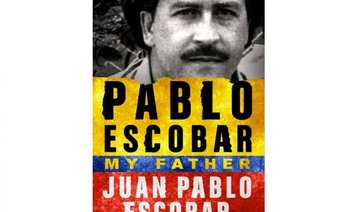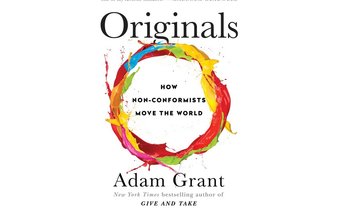The popularity of Russia’s President Vladimir Putin seems undiminished since the high ratings he received three years ago regarding the reunification of Crimea. What is also remarkable is that his reputation appears to be unaffected by the country’s recent economic troubles. However, in the wake of recent protests, feelings of discontent and mounting criticism are a growing challenge for the Kremlin.
“Putin Country: A Journey into the Real Russia” takes us to Chelyabinsk, a city which became a hub when it was linked to Siberia in 1896 with the Trans-Siberian Railway.
Author Anne Garrels chronicles the development which has taken place in the area she calls the “real Russia” through the prism of Chelyabinsk since 1993, two years after the breakup of the Soviet Union. In those days, Chelyabinsk, like other Russian towns, was a sad-looking place reflecting the total collapse of the economy. Moscow was still the richest and most powerful city and it was developing fast.
From the 1930s, the entire region of Chelyabinsk, the size of Austria, had been isolated from the rest of the country because of its secret military installations. Russians still remember the days of anarchy during the 1990s when hunger, unemployment and poverty were rampant. They now aspire to live in an economically stable country and believe that Putin has reinstated national pride.
The 1990s provided an opportunity for a few well-connected individuals in Moscow to make a fortune but for the majority living in the rest of Russia, democracy and reform came with hunger, crime and poor-quality social services.
“Even today, few Westerners fully appreciate how unpopular (former president) Boris Yeltsin and his circle of Westernized and Western-supported advisers had become,” Garrels wrote.
When Yeltsin stepped down at the end of 1999, he named the unknown Vladimir Putin as his successor. Under Putin, Russians benefitted from higher prices of oil, gas and raw materials. Salaries were paid, pensions increased, social services improved and soaring inflation was brought under control.
Ten years after Putin came to power, the Russian economy was flourishing. This created a consumer boom and sparked the emergence of a middle class. Change was visible everywhere. The center of Chelyabinsk was completely renovated with a beautiful cobbled street lined with elegant shops, cafes and restaurants.
“Clothing stores — from Chanel, Max Mara and Escada to more affordable chains like H&M — sell Western apparel for stylish Russian women who effortlessly stroll (along) the cobblestones in four-inch heels… The new generation of Russian women have access to the best makeup, salons, spas and fitness clubs, not to mention plastic surgery. It’s a far cry from the babushkas of the recent past,” Garrels wrote.
When the author arrived on her first visit in 1993, Chelyabinsk had no decent hotels but 20 years later, American and European hotel chains cater to Russian and foreign customers.
Many Russians who have access to credit are either buying new houses or renovating their homes with designer bath tiles and European-style kitchens. There are also many travel agencies as it is a booming industry. Russians from all walks of life look for sun and fun in Egypt, Turkey, Thailand and Dubai.
It seems that Russians are still trying to understand who they really are and where they fit in the world. Despite the positive changes, some regret the demise of the Soviet Union and blame scapegoats for existing problems, according to the book.
The government and the state-run media constantly reference the existence of a Western conspiracy, creating suspicions which, according to Garrels, “are not without foundation.”
Jack F. Matlock, the American ambassador during the breakup of the Soviet Union, believes that the end of the Cold War was not a victory but a negotiated agreement that was intended to benefit all sides and boost future cooperation. However, the US has tended to treat Russia as a loser and took advantage of its weakness, thus fomenting feelings of humiliation and revenge. Therefore, Putin struck a chord with proud Russians. His policy on Crimea has raised his popularity and, despite the economic sanctions, many Russians stand by their president’s policy regarding Ukraine.
Still struggling
Russia is still struggling with a demographic crisis. While the US has a population of just over 300 million, Russia has only 142 million in a country twice the size. The government has come up with a number of programs to increase the domestic birthrate. Parents receive a payment for each child born after the first child and a woman’s job is guaranteed for two years after birth.
Nowadays, young people are getting married later. They often leave the family home and relocate to other towns in search of a job. Grandmothers, who used to help take care of the children while their parents were at work, often have a career of their own or they decide to work in order to increase their meager pension.
However, a number of middle class business owners who fear an uncertain future are leaving Russia. They are not the only ones as the country’s talented graduate students have also criticized the lack of opportunities in the field of physics and economics. They say that their countrymen must realize that oil and gas must not prevent the government from creating and developing new industries.
Young people in Russia, like the rest of the world, spend hours on the Internet. Many are concerned about moral degradation and they resent the fact that money is so highly valued. Indeed, the fact that universities are no longer free has created a new class of students who feel free to do whatever they want. Some students bribe their professors to avoid failing exams and the quality of higher education in some establishments has deteriorated as a result.
“A Fulbright scholar at the Teacher Training University was also stunned by the utter apathy of her students. When she showed them a few TED talks and asked them what they thought about the issues, they said: ‘That’s not for us to think about. The government, which is wiser than us, will decide’,” Garrels wrote.
However, in an era of international sanctions and the falling price of oil, can Putin still make the right decisions for the country? Moving forward could prove to be an impossible task.
Book Review: Take a journey into the real Russia
Book Review: Take a journey into the real Russia

Book Review: ‘When Breath Becomes Air’

- Kalanithi, an American neurosurgeon, talks about his own journey from being a physician to becoming a patient himself facing premature mortality
Published a year after the author’s death aged 37 in 2015, “When Breath Becomes Air” is an autobiography about the life and struggle with terminal lung cancer of Dr. Paul Kalanithi.
In the book, Kalanithi, an American neurosurgeon at Stanford University, talks about his own journey from being a physician providing treatment to his patients to becoming a patient himself facing premature mortality.
The narrative moves from talking about how Kalanithi saved lives to confronting the end of his own, reflecting on what makes life worth living in the face of death.
Despite his diagnosis, Kalanithi continued working as a physician and even became a father, explaining to his readers how he embraced life fully until the very end.
Unfortunately, the book had to be completed by his wife after his passing, and serves as a moving meditation on legacy, purpose, and the human experience.
Among the book’s strengths are its authenticity and depth of emotions, touching on everything from the day-to-day experiences of physicians to Kalanithi’s own love of literature — originally, he had studied English at university. A fitting tribute, then, that his own work would go on to become a New York Times’ bestseller.
Neurosurgery, though, was in his words an “unforgiving call to perfection” which not even his diagnosis could check. “Before my cancer was diagnosed, I knew that someday I would die, but I didn’t know when,” he wrote. “After the diagnosis, I knew that someday I would die, but I didn’t know when.”
The book garnered praise upon publication, winning the Goodreads Choice Award for Memoir and Autobiography in 2016. Its run on the NYT’s bestseller list lasted an impressive 68 weeks.
Writing in the Guardian, Alice O’Keefe suggested: “The power of this book lies in its eloquent insistence that we are all confronting our mortality every day, whether we know it or not. The real question we face, Kalanithi writes, is not how long, but rather how, we will live — and the answer does not appear in any medical textbook.”
What We Are Reading Today: ‘An Introduction to General Relativity and Cosmology’

Author: Steven A. Balbus
General relativity has entered a new phase of its development as technical advances have led to the direct detection of gravitational radiation from the merging of single pairs of stellar-sized black holes. The exquisite sensitivity of pulsar signal timing measurements has also been exploited to reveal the presence of a background of gravitational waves, most likely arising from the mergers of supermassive black holes thought to be present at the center of most galaxies. This book demonstrates how general relativity is central to understanding these and other observations.
What We Are Reading Today: ‘How to Change a Memory’ by Steve Ramirez

As a graduate student at MIT, Steve Ramirez successfully created false memories in the lab. Now, as a neuroscientist working at the frontiers of brain science, he foresees a future where we can replace our negative memories with positive ones.
In “How to Change a Memory,” Ramirez draws on his own memories—of friendship, family, loss, and recovery—to reveal how memory can be turned on and off like a switch, edited, and even constructed from nothing.
What We Are Reading Today: ‘In The Brain, In Theory’

- Engineering is the use of knowledge to solve technical problems, to build an artifact with a plan
Author: ROMAIN BRETTE
“In The Brain, In Theory,” Romain Brette argues that the brain is not a “biological computer” because living organisms are not engineered.
Engineering is the use of knowledge to solve technical problems, to build an artifact with a plan. Brette reviews the main theoretical frameworks for thinking about the brain, including computation, neural representations, information, and prediction, and finds them poorly suited to the study of biological cognition.
He proposes understanding the brain as a self-organized, developing community of living entities rather than an optimized assembly of machine components.
What We Are Reading Today: ‘Physics of the Tropical Atmosphere and Tropical Cyclones’

Author: Kerry Emanuel
“Physics of the Tropical Atmosphere and Tropical Cyclones” provides readers with a firm grounding in the observations, theory, and modeling of tropical weather systems and tropical cyclones.
How and why do tropical cyclones form? What physics underpins their genesis, intensification, structure, and power?
This authoritative and accessible book tackles these and other questions, providing a unifying framework for understanding most tropical weather systems.



















